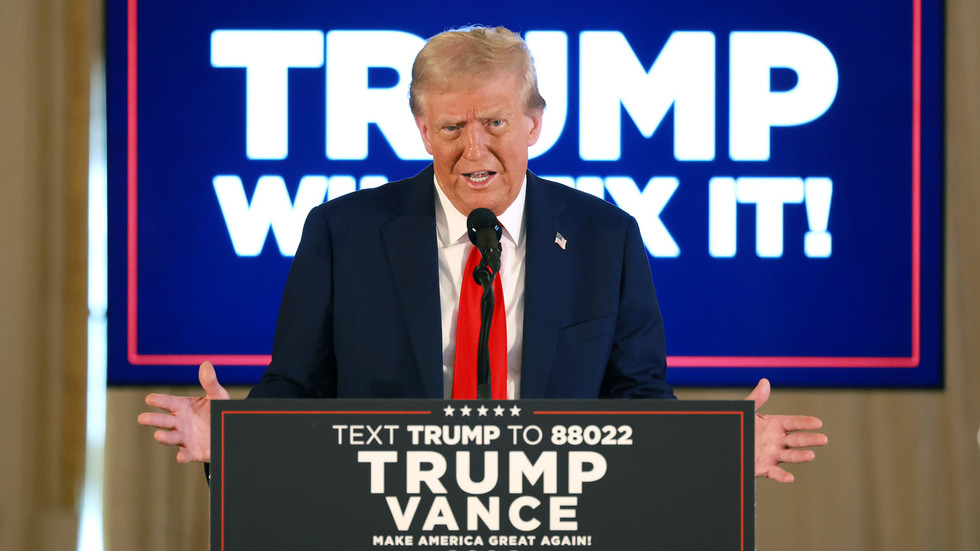The European Union is proactively preparing for the possibility of Donald Trump returning to power in the United States, a sentiment conveyed through interviews with multiple high-level European politicians, diplomats, and policymakers. The central focus of these discussions highlights the EU’s determination to reduce its dependency on the U.S., irrespective of the outcome of the impending presidential elections. Having experienced a Trump administration previously, EU leaders exhibit a sense of heightened confidence, with many emphasizing the necessity of having contingency plans in place to address scenarios where Trump, or a similar figure, secures the presidency. Michael Stempfle, a spokesman for the German Defense Ministry, articulated a significant understanding that, regardless of the U.S. election results, American foreign policy is increasingly shifting its focus toward the Indo-Pacific region. Consequently, there is a consensus among European leaders that they must enhance their own security provisions.
The perception that Trump’s first term could be a precursor to similar future administrations has led to a renewed urgency for the EU to bolster its own security strategies. The EU is acutely aware of Trump’s previous pressure on NATO allies to increase their military expenditures and his threats of withdrawing from the alliance. This has spurred discussions within the bloc regarding self-reliance and collective security measures independent of U.S. support. As indicated by Thomas Erndl, deputy chair of Germany’s parliamentary committee for foreign affairs, the current situation reflects a growing reality that the U.S. may not retain the same level of traditional transatlantic partnership under future administrations. This paradigm shift compels Europe to shoulder a greater share of responsibility, particularly in regard to security provisions and defense initiatives.
In tandem with security considerations, the EU is also bracing for the potential onset of a new trade war with Trump. His prior administration’s hardline stance on trade, marked by imposing substantial tariffs on European steel and aluminum, has created a backdrop of apprehension within EU circles regarding economic relations. Trump has signaled intentions to adopt an even tougher stance on trade, leading EU officials to preemptively draft retaliatory tariffs aimed at countering potential U.S. actions. The atmosphere among EU diplomats is one of prudence; they acknowledge the importance of preparedness in the face of trade tensions that could escalate regardless of optimistic expectations of cooperation.
Further enhancing the EU’s strategic posture, there appears to be a growing willingness among European officials to engage in discussions on addressing broader trade issues, such as combating unfair trade practices associated with China. Such negotiations could serve as a diplomatic avenue to address potential disputes with the U.S. while reinforcing transatlantic ties based on shared interests and mutual economic benefit. The initiative to navigate the complexities of international trade relations marks a significant evolution in European policy-making and reflects a proactive approach aimed at preemptively mitigating potential fallout from any confrontational stance adopted by a future U.S. administration.
Overall, the combination of security reinforcement and economic strategy reveals an intense level of introspection within the EU regarding its geopolitical identity and resilience. The recognition that reliance on U.S. leadership, particularly in the realm of security and trade, may no longer be sustainable has catalyzed a shift toward self-sufficiency and increased investment in European capabilities. European leaders are setting a course towards fostering a more autonomous European defense network while simultaneously fortifying economic frameworks to withstand potential shocks resulting from unpredictable U.S. trade policies.
In summary, the EU’s response to the prospect of another Trump presidency encapsulates a vital transition in transatlantic relations, revealing an acknowledgment of the new geopolitical realities in which Europe must navigate. The bloc’s strategic foresight includes a consolidation of defense capabilities and an uncompromising stance on economic readiness. In doing so, the EU aims to cultivate a future defined less by dependence on U.S. leadership and more by its commitment to collective security and economic resilience, irrespective of American political whims. This evolution reflects a broader understanding of international relations where Europe increasingly embraces its role on the global stage.

